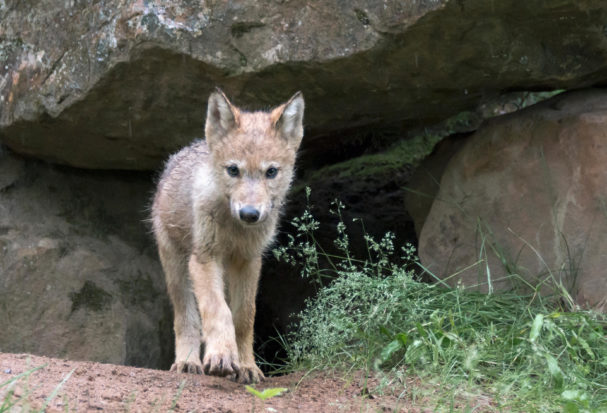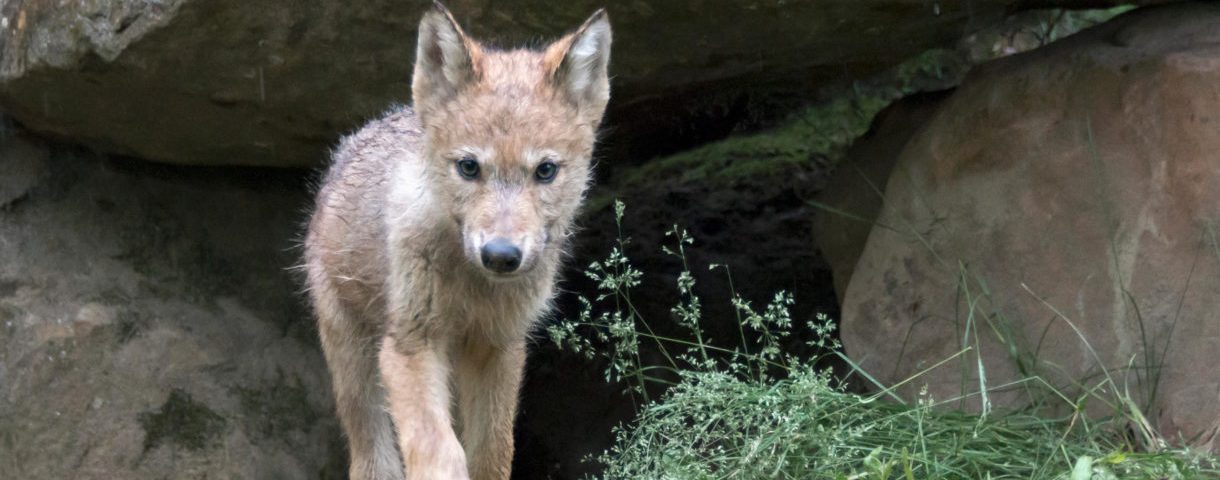A U.S. Fish and Wildlife Service decision to strip Endangered Species Act protections for gray wolves in Wyoming was upheld by the U.S. Court of Appeals on Friday, all but clearing the way for the state to allow an open season on the small population of wolves surviving in the state (only the wolves who stay inside park boundaries at Yellowstone and Grand Teton national parks and the Wind River Indian Reservation would continue to be protected). It’s a surprising ruling given that Wyoming has continued to demonstrate it does not have the right conservation plan or the political will to resist a wholesale slaughter of wolves in the state.
This decision results from an appeal of a 2014 ruling that rejected Wyoming’s wolf management plan, finding that the state failed to provide enforceable commitments that would forestall the near extirpation of the state’s wolf population.
As much as we might disagree with the court’s decision, it provides an unfortunate but nonetheless compelling argument for Congress to keep its nose out of Endangered Species Act (ESA) listing and delisting actions and to avoid short-circuiting administrative or judicial review of these actions. Congress is driven purely by political considerations, and ESA listing and delisting decisions are best left to professional agencies, through rulemaking actions that require input from expert scientists, other key stakeholders, and the general public, and with review by the federal courts. Congress should let these proceedings move ahead and not short-circuit them with heavy-handed delisting actions.

As much as we might disagree with the court’s decision, it provides an unfortunate but nonetheless compelling argument for Congress to keep its nose out of ESA listing and delisting actions. Photo by Alamy
There are two bills in Congress, H.R. 424 and S. 164, dubbed the “War on Wolves Act,” that are written to have Congress subvert these processes. These bills would remove federal Endangered Species Act protections for gray wolves in Wyoming and the northern Great Lakes states of Michigan, Minnesota, and Wisconsin. The courts are still reviewing the legality of the Fish and Wildlife Service decision to remove ESA protections from wolves in the Great Lakes states. There, in a case brought and led by The HSUS, a U.S. District Court judge previously ruled that the agency action was premature and wrong-headed, because it is looking too narrowly at wolf recovery within specific populations and not looking at the health of wolf populations more broadly.
Lawmakers, quick to cater to the vocal minority that wants to hunt and trap wolves, are ignoring the best available science, which reveals that these apex carnivores occupy just a fraction of their original range and number only 5,000 across the entire lower 48 states. That science also shows that random killing of wolves – by trophy hunters and trappers – may actually lead to conflicts between wolves and livestock by disrupting and dispersing stable packs. The livestock loss is an amplified myth. A March 1, 2017 analysis by The HSUS showed that in Wyoming, wolves killed 0.11 percent of Wyoming’s entire cattle inventory and 0.02 percent of its entire sheep inventory. Far more livestock die from illness, birthing problems, and random weather events.
The sponsors of the War on Wolves Act included an insidious provision that would eliminate judicial review, and allow Congress to delist the species on a whim. It’s a power grab, pure and simple, one that will threaten wolves in ways that the broader public doesn’t support.
A study last year showed that most Americans hold positive or even “very positive” associations with wolves. A 2014 statewide survey of nearly 9,000 Wisconsin residents showed most residents believe that wolves are important members of the ecological community who keep deer in balance and should be enjoyed by future generations. And in November 2014, Michigan voters rejected two legislative proposals to authorize trophy hunting and trapping of wolves, drubbing both measures at the ballot box.
The court’s ruling on Wyoming is a devastating blow to wolves. We disagree with the reasoning but we accept it. Congress should also accept the rulings, whether the decisions are aligned with their wishes or not. It’s wrong for lawmakers to subvert both the professional agency and the federal courts.
The post Federal appeals court likely to doom hundreds of wolves in Wyoming appeared first on A Humane Nation.
Enviroshop is maintained by dedicated NetSys Interactive Inc. owners & employees who generously contribute their time to maintenance & editing, web design, custom programming, & website hosting for Enviroshop.
